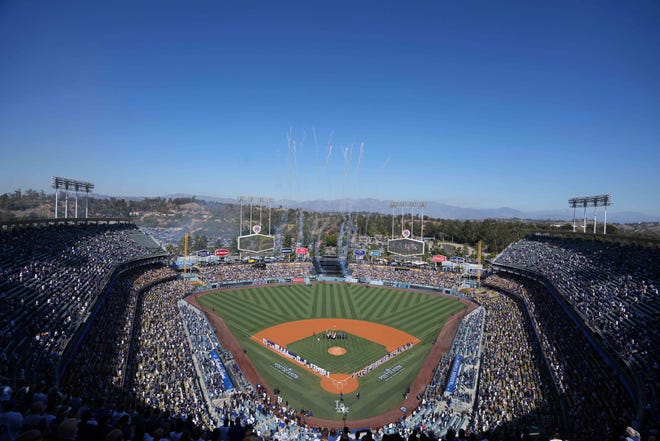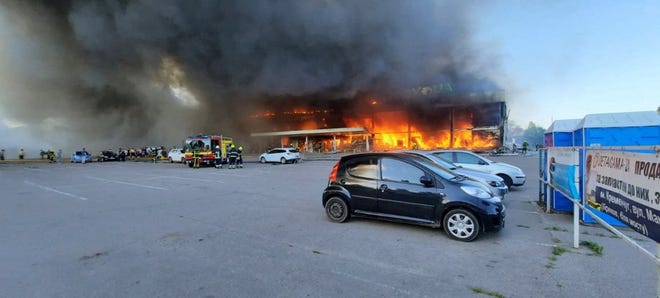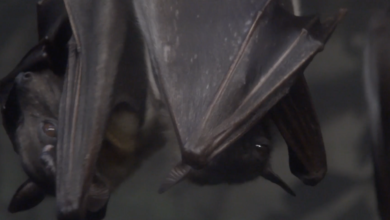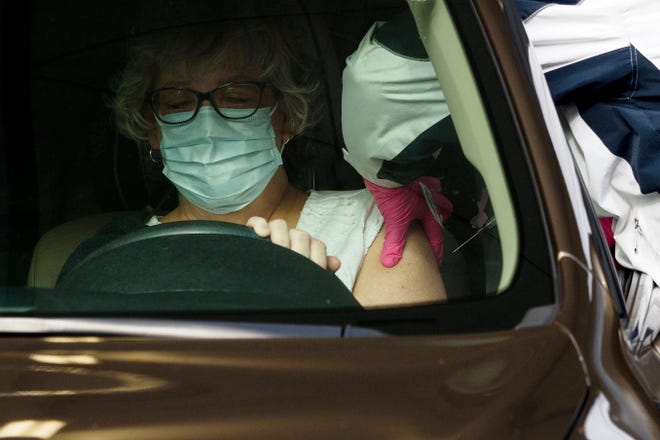
With Major League Baseball’s collective bargaining agreement with the MLB Players’ Association expiring at midnight Wednesday evening, the league's 30 owners voted to lock out players beginning Thursday, creating the first work stoppage since 1994-95.
MLB officials met multiple times this week with their union counterparts along with players on the MLBPA’s executive council, but as highly expected, there was not nearly enough runway for the sides to hammer out an agreement during what’s expected to be the most contentious CBA negotiations since 2002.
Instead, commissioner Rob Manfred, at the behest of owners, will freeze all league business until an agreement is reached. That means no trades, no free-agent signings and no players allowed inside club facilities.
The CBA’s impending expiration kick-started a free agent frenzy in the days and hours preceding it, as six players agreed to nine-figure contracts and teams doled out more than $1.7 billion in contracts in November.

Such lucre would indicate an industry in good health, and nobody’s losing money in the big leagues, from owners to executives to players. But this CBA fight has been five years in the making, as multiple owners pivoted their clubs away from competing and significantly devalued veteran players in the years following the 2016 agreement.
Players, then, are seeking radical changes to compensation to counter the industry’s enhanced valuation of younger talent. The MLBPA proposed that six years of service time is still required for free agency - or five years if a player is 29 1/2 years or older by the fifth year of the CBA. They also seek other methods to get young, highly productive players paid sooner, based on award and performance benchmarks. As it stands, teams can unilaterally set the salaries of players with zero to three years of service time regardless of how valuable they are.
In a letter to fans released on the league's website that was scrubbed of any mention of current players on its home page, Manfred moved quickly to assign blame to players in bemoaning the league's inability "to extend our 26 year-long history of labor peace and come to an agreement with the MLBPA before the current CBA expired."
"This defensive lockout was necessary because the Players Association’s vision for Major League Baseball would threaten the ability of most teams to be competitive," says Manfred, who helms a league that's seen 21 of 30 franchises reach the World Series since 2001. "It’s simply not a viable option. From the beginning, the MLBPA has been unwilling to move from their starting position, compromise, or collaborate on solutions.
"...Regrettably, it appears the Players Association came to the bargaining table with a strategy of confrontation over compromise. They never wavered from collectively the most extreme set of proposals in their history, including significant cuts to the revenue-sharing system, a weakening of the competitive balance tax, and shortening the period of time that players play for their teams. All of these changes would make our game less competitive, not more."
Indeed, players are hoping to steer franchises away from using the luxury tax as a de facto salary cap, and, at the very least, set the tax ceiling at a much higher level. It was $210 million (including salaries and benefits for the entire 40-man roster) for the 2021 season and has not risen at a rate commensurate with revenues in this nearly $11 billion industry.
In final proposals exchanged Wednesday, players requested a $245 million luxury tax threshold, with no progressive penalties for offenders; owners are offering a $214 million threshold, rising to $220 million in the final year of a five-year agreement.
It is a large but seemingly navigable gulf, and indicative that the players' proposals stem from a desire to alter owner behavior, or at the very least loosen governors on spending.
Tony Clark, executive director of the MLBPA, said in a statement early Thursday that the MLB-imposed lockout was a "dramatic measure" that was "not required by law or any other reason," and that freezing out the players will not break their resolve.
"It was the owners' choice, plain and simple, specifically calculated to pressure Players into relinquishing rights and benefits, and abandoning good faith bargaining proposals that will benefit not just players, but the game and industry as a whole."
The early rash of big-money signings belied franchise behavior in recent years that saw megastars like Bryce Harper and Manny Machado without contract offers until late February, and many rank-and-file veterans waiting until March for below-market deals.
Three-time Cy Young Award winner Max Scherzer, who as a member of the MLBPA's executive council has attended multiple negotiating sessions, says his recently-signed three-year, $130 million deal with the New York Mets indicates new owner Steve Cohen's disregard for the luxury tax shouldn't be an outlier.
"That’s a specific thing we’re negotiating on right now – how teams view that as a cap and won’t spend too much over that despite the penalties being pretty negligible," Scherzer said from Irving, Texas, in a video news conference introducing him as a Met. "Steve showed he’s willing to do whatever it takes to win. That’s music to my ears."
The players' desired alterations to compensation are relatively aggressive and that’s before any on-field issues – expanded playoffs, a pitch clock, the designated hitter - are broached. It’s compounded by the fact players have little to offer owners in return, save for some form of playoff expansion that would generate significant revenues.
The MLBPA countered MLB's proposal for a 14-team playoff field with a 12-team option, which would boost TV revenue but, from their perspective, maintain the integrity of the regular season and force franchises to more fervently compete to make the postseason field.
While both sides hoped the looming specter of a deadline would force them closer to an agreement, it’s unsurprising that such complex and potentially disruptive topics were not agreed upon by 11:59 ET Wednesday.
So, what now?
The hours before the lockout began brought one more flurry of trades and signings, most notably the Chicago Cubs agreeing to a three-year, $71 million deal with right-hander Marcus Stroman and infielder-outfielder Chris Taylor returning to the Los Angeles Dodgers on a four-year, $60 million pact.
The Brewers and Red Sox swapped outfielders, Hunter Renfroe heading to Milwaukee and Jackie Bradley Jr. returning to Boston. The Reds announced the signing of five minor-league free agents, a group desiring a definite spring destination even if it comes with no guaranteed money.
While this technically is a work stoppage, the timing of the CBA’s expiration offers both parties a chance to reach agreement before any games – exhibition or regular season – are lost. Yet that, too, is not a limitless window. Pitchers and catchers are due to report to spring training beginning Feb. 15, with exhibition games starting 11 days later.
Opening Day is set for March 31.
That's also the start of the first pay period for players. The MLBPA has been withholding distributions of some licensing money to provide a salary pool for players should the work stoppage extend into the regular season and Scherzer said they are prepared for a long haul if necessary.
"We have a pretty good war chest behind us, of money we can allocate to players for situations like this," says Scherzer. "Knowing, for the past five years, we’ve been thinking we’ll need as big a war chest as possible coming into this.
"The best case scenario would be to not tap it. Obviously, we hope we can get a deal at some point in time."
The principals involved are all old enough to remember the dark days of 1994-95, when a players’ strike wiped out the ’94 World Series and owners attempted to deploy replacement players to start the next season. Only a temporary injunction against the owners enabled players to return to the field under the terms of the previous CBA.
Again, this round is not expected to get so bloody, and so direly threaten the 2022 season. But not since September 2002 negotiations – when the cloud of ’94 loomed far more significantly – have the sides weighed such meaty issues. Back then, it was drug testing and revenue sharing, and an agreement was reached just hours before games were imperiled.
Now, potentially an entire winter of discord awaits, threatening the rituals of spring.
Source link




